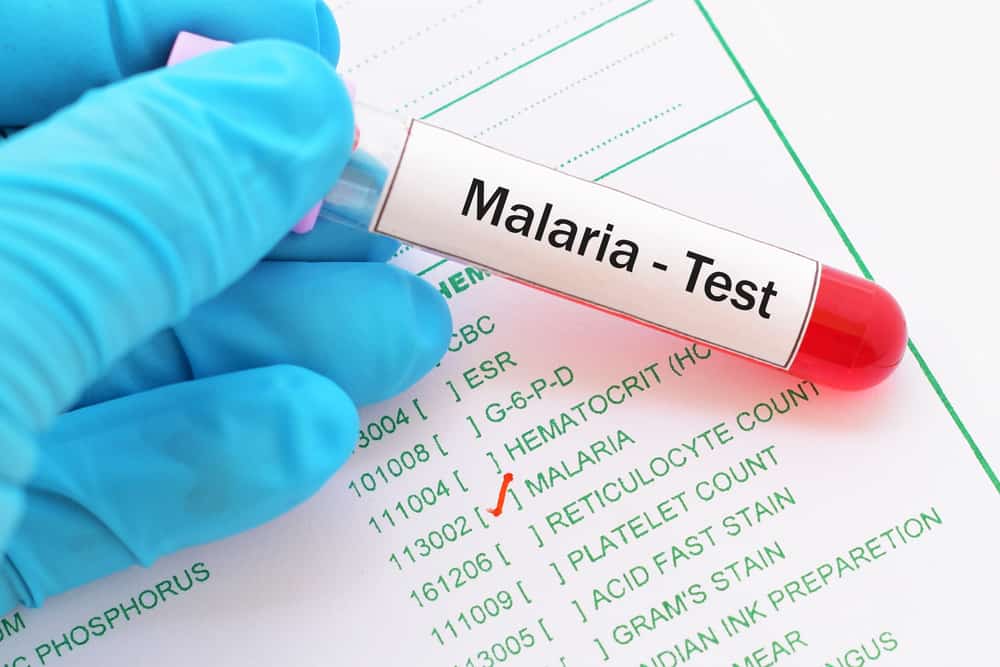Contents:
- Medical Video: 7 Common Signs Of Prostate Cancer You Should Not Ignore
- What causes malaria?
- What are the signs and symptoms of malaria?
- Uncomplicated malaria (mild malaria)
- Severe malaria
- When to see a doctor?
Medical Video: 7 Common Signs Of Prostate Cancer You Should Not Ignore
Malaria is not a disease that can be underestimated. Because the disease is estimated to kill around 660,000 people every year. Malaria cannot be underestimated because it develops very quickly when it starts infecting the human body, even if it is not immediately treated it can be fatal. So it is important for you to understand well what signs and symptoms of malaria you should look out for.
What causes malaria?
Malaria is a deadly disease that occurs in many tropical and subtropical regions that have a climate hot enough to facilitate the development of malaria parasites.
Malaria is caused by the Plasmodium parasite from mosquito bites Anopheles infected female. When mosquitoes bite humans, the parasites are transmitted and enter the bloodstream, eventually multiplying.
Once cooked, the parasite enters the bloodstream and begins to infect human red blood cells. The number of parasites in red blood cells will continue to grow in an interval of 48-72 hours.
After infection with mosquito bites, symptoms will appear (incubation period) around 7 to 30 days later. The incubation period of each type of plasmodium can be different.
Indeed there are many types of plasmodium that can cause malaria. But in Southeast Asia, Malaysia and the Philippines, the most common type of plasmodium is plasmodium knowlesi. The development of parasites that are fast enough to make malaria of this type can cause organ disability to death.
Malaria cannot be transmitted from person to person, although in some cases it can spread without the intermediary of mosquitoes. For example, the virus moves from pregnant women to the fetus, due to inappropriate blood transfusion procedures, and the use of alternating needles.
What are the signs and symptoms of malaria?
The main symptom of malaria is high fever which causes shivering, and has symptoms similar to flu. Symptoms of malaria can be grouped into 2 categories, namely:
Uncomplicated malaria (mild malaria)
Mild malaria usually causes mild symptoms but does not damage organ function. But this symptom can turn into severe malaria if it is not treated immediately, or if you have a bad immune system.
Symptoms of uncomplicated malaria usually last for 6-10 hours, but sometimes occur for longer periods even with more complicated symptoms. Because, sometimes the symptoms that occur are very similar to flu, so it can cause a wrong diagnosis of the disease.
Signs of experiencing mild malaria, the development of symptoms will appear as follows:
- The body feels a cold and shivering sensation
- Fever
- Headache
- Nausea and vomiting
- Seizures, usually occur in malaria sufferers at a young age
- Sweating body accompanied by fatigue
- Pain in the body
Severe malaria
In the symptoms of severe malaria, it is usually evidenced by the results of a clinic or laboratory that shows signs of vital organ dysfunction and several other symptoms, such as:
- High fever accompanied by great shivering
- Having impaired consciousness
- Experience seizures
- Presence of respiratory problems
- The appearance of severe anemia
- Experiencing vital organ dysfunction
- Kidney failure
- Cardiovascular collapse
- Low blood sugar levels (usually occurs in pregnant women)
When to see a doctor?
As you have seen before, that malaria can develop in a very fast time. It is better if you or family members experience signs of the disease as mentioned above, immediately seek medical care as soon as possible.
Especially if these symptoms occur in infants, young children and pregnant women because the symptoms of malaria will develop to be very severe in all three groups.
No exception for those of you who live in areas with low malaria cases, but have traveled from areas at risk of malaria.
If after returning from the area you have a high fever, even if you prevent malaria and regularly take antimalarial drugs, you should still see a doctor.












